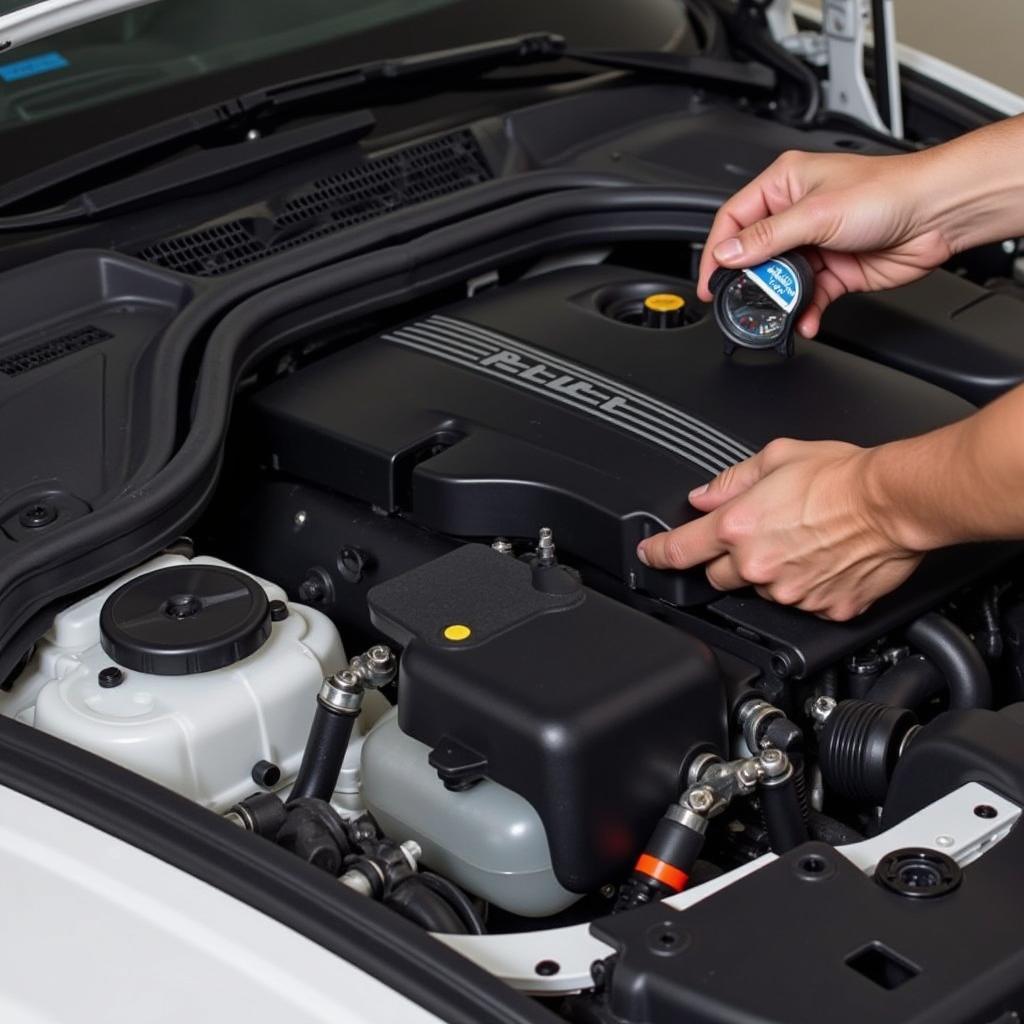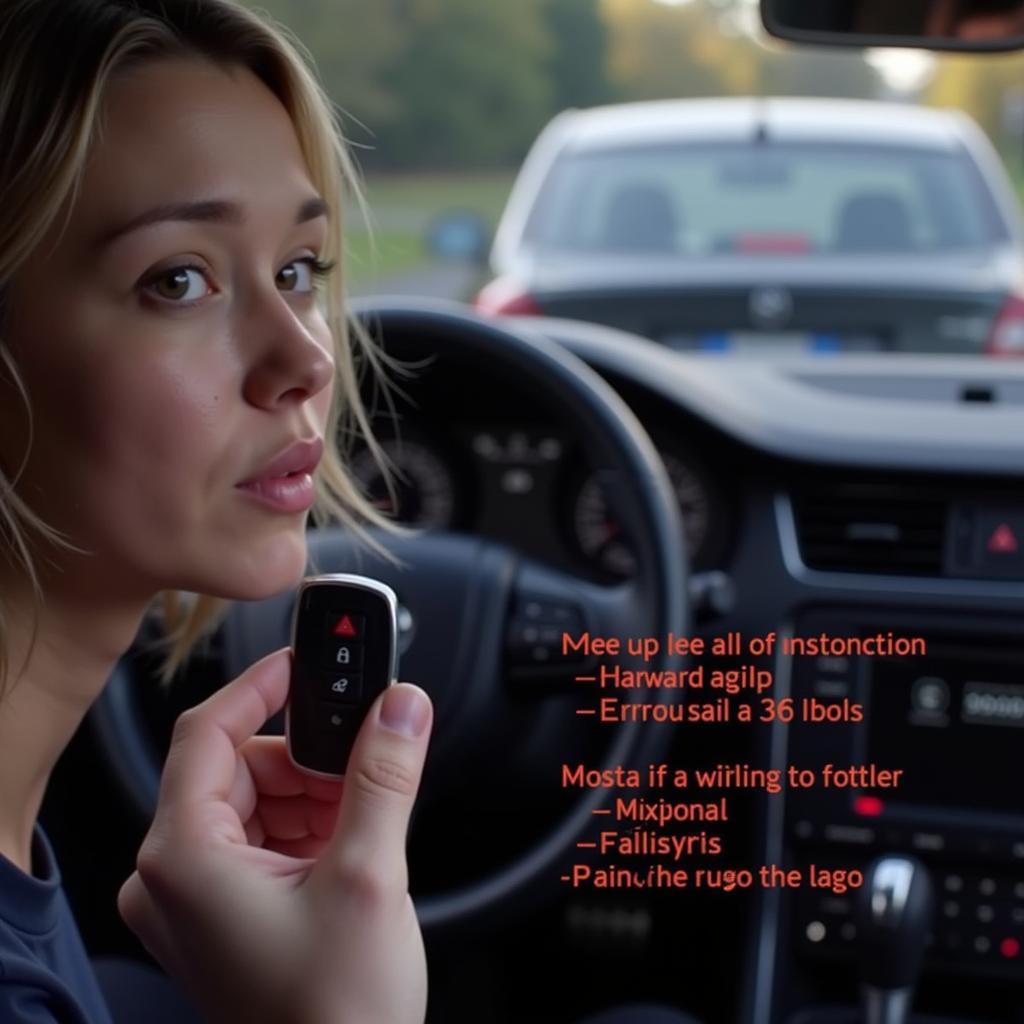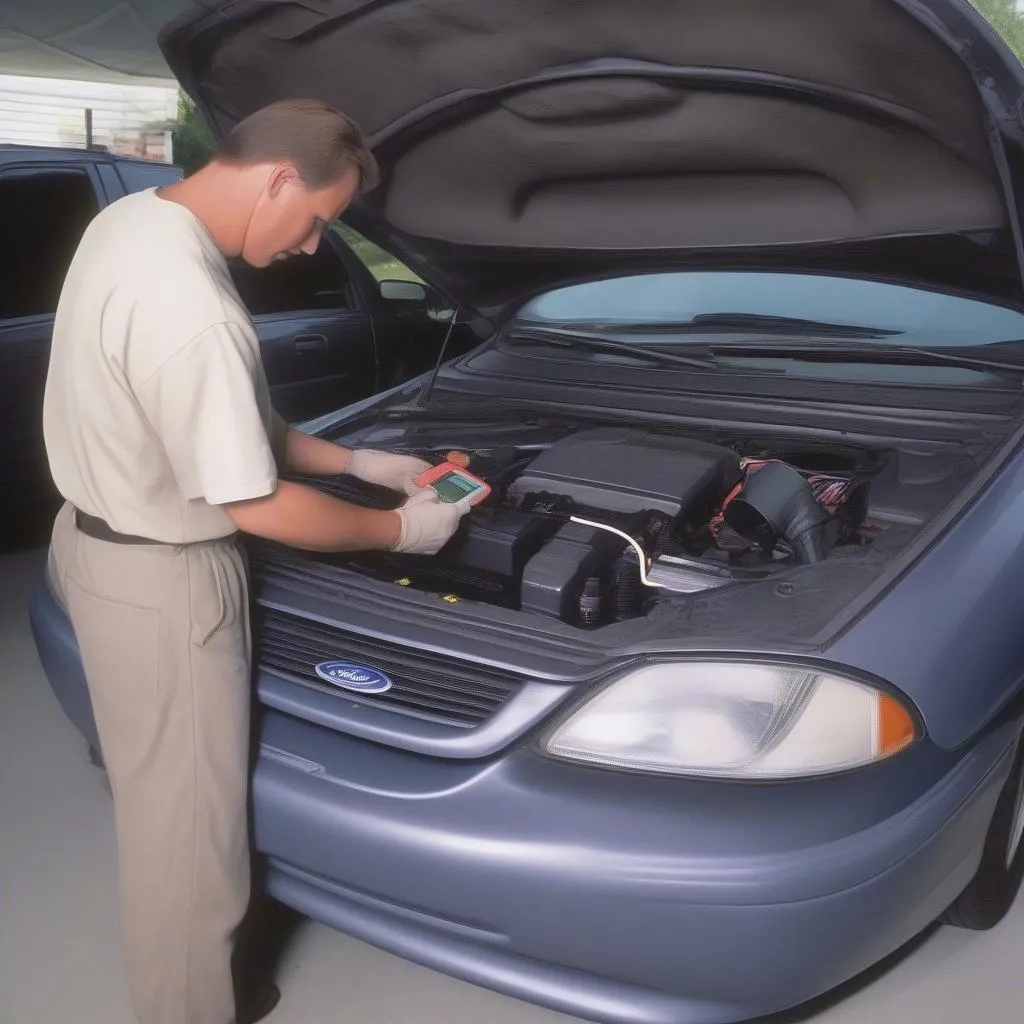The dreaded parking brake warning light on your BMW dashboard can be a cause for concern, but don’t panic just yet. This light, often accompanied by a chime or message on the instrument cluster, typically indicates an issue with your vehicle’s braking system. While it may seem daunting, understanding the potential causes and solutions for a BMW parking brake warning light can help you address the problem effectively and get back on the road safely.
Common Causes of a BMW Parking Brake Warning Light
The parking brake warning light on your BMW can illuminate for various reasons, ranging from simple oversights to more complex mechanical failures. Here are some common culprits:
1. Engaged Parking Brake: This may seem obvious, but sometimes the simplest answer is the right one. Always double-check that you’ve fully disengaged the parking brake before driving.
2. Faulty Brake Pad Sensor: BMWs are equipped with brake pad wear sensors that trigger the warning light when the brake pads are worn down and need replacement.
3. Low Brake Fluid Level: Insufficient brake fluid can also illuminate the parking brake warning light. This could indicate a leak in the braking system, which requires immediate attention.
4. Malfunctioning Parking Brake Switch: The parking brake switch, responsible for signaling the system when the brake is engaged or disengaged, can wear out or malfunction, leading to a false warning light.
5. Issues with the Electronic Parking Brake (EPB): Many modern BMWs feature an electronic parking brake, a complex system that can experience issues with its control module, actuators, or wiring.
 Checking BMW Brake Fluid Level
Checking BMW Brake Fluid Level
“A common misconception is that the parking brake warning light always signifies a major issue,” says Jake Carter, a senior BMW technician at Bavarian Autohaus. “While it’s crucial to address the warning promptly, sometimes it’s as simple as low brake fluid or worn brake pads.”
Troubleshooting and Solutions
Before rushing to a mechanic, there are a few troubleshooting steps you can take to diagnose the issue:
-
Check the Parking Brake: Ensure the parking brake is fully disengaged. Sometimes, a slight bump or incomplete release can trigger the light.
-
Inspect Brake Fluid Level: Locate the brake fluid reservoir under the hood and check the fluid level. If it’s low, add the recommended brake fluid for your BMW model.
-
Examine Brake Pads: If you suspect worn brake pads, consult your BMW’s service manual or a mechanic to inspect their thickness.
-
Reset the Warning Light: If the warning light persists after checking the above and you’re confident there’s no underlying issue, you can try resetting the light. Instructions for resetting vary by model, so refer to your owner’s manual or search online for specific instructions for your BMW. However, remember that resetting the light is not a solution if an actual problem exists.
When to Seek Professional Help
If the parking brake warning light remains illuminated after troubleshooting or you suspect a more serious issue, it’s crucial to seek professional help immediately. Driving with a malfunctioning parking brake or compromised braking system can be dangerous.
For more complex issues, like a faulty parking brake switch or problems with the EPB, it’s best to consult a qualified BMW mechanic or dealership. They have the expertise and specialized tools to diagnose and repair these systems effectively. For instance, they can use a diagnostic scan tool to read fault codes stored in your BMW’s computer, pinpointing the root cause of the warning light.
Preventing Future Issues
Regular maintenance is key to preventing parking brake warning lights and ensuring optimal braking performance. Here are some preventive measures:
- Adhere to BMW’s Recommended Maintenance Schedule: Regular servicing allows technicians to inspect your braking system, top off fluids, and identify potential issues before they escalate.
- Inspect Brake Pads Regularly: Check your brake pads’ condition every 10,000 miles or as recommended in your owner’s manual.
- Address Warning Lights Promptly: Ignoring any warning light on your dashboard can lead to more significant problems down the line.
By understanding the potential causes of a BMW parking brake warning light and taking prompt action, you can ensure your safety on the road and keep your BMW performing at its best. Remember, when in doubt, consult a professional.
FAQs
Q: Can I drive my BMW with the parking brake warning light on?
A: While you might be able to drive for a short distance, it’s highly discouraged. Driving with a potential braking system issue compromises your safety and could lead to further damage.
Q: How much does it cost to fix a BMW parking brake warning light?
A: The cost varies depending on the underlying cause. A simple fix like topping off brake fluid could be inexpensive, while replacing a faulty EPB module can be costly.
Q: How do I reset the parking brake warning light on a BMW?
A: The process varies by model. Consult your BMW owner’s manual or seek online resources for model-specific instructions.
Q: Do worn brake pads always trigger the parking brake warning light?
A: Yes, BMWs have wear sensors that illuminate the warning light when brake pads reach a certain wear limit.
Q: Can a low battery cause the parking brake warning light to come on?
A: While unlikely, a severely low battery can sometimes cause erratic dashboard warnings. However, it’s essential to address the root cause of the warning light.


